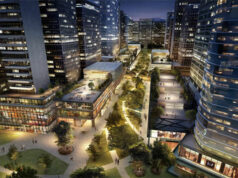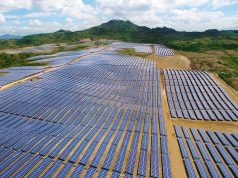
By Sheldeen Joy Talavera Reporter
JOSE Victor Emmanuel “Jocot” A. de Dios, president and chief executive officer of water utility Manila Water Co., Inc., said he hopes to expand and replicate the company’s service model beyond its east zone concession.
“I think it’s our collective mission in the company to bring it out to areas where [there are] less privileged or really just victims of the very complex regulatory environment that we have, [who] do not enjoy the same level of service,” Mr. De Dios said in an interview with BusinessWorld.
“That means you have to expand, you have to grow your business outside the East Zone with the intent of replicating what you do in the East Zone in the Non-East Zone,” he added.
Manila Water provides water supply, wastewater, and sanitation services to over 7.3 million customers in 23 cities and municipalities of the east zone of Metro Manila and Rizal province.
The company has holding companies for its domestic operating subsidiaries and international ventures that cater to the consumers outside the concession.
In 1997, Manila Water and the Metropolitan Waterworks and Sewerage System entered into a concession agreement to hold the right to provide water and wastewater services to the eastern side of Metro Manila for 25 years. Set to expire in 2022, this was extended until 2037.
Republic Act No. 11601 granted Manila Water a 25-year legislative franchise to establish, operate, and maintain a waterworks system and sewerage and sanitation services in the east zone and the province of Rizal and confirms its status as a public utility.
PROFESSIONAL JOURNEY
Prior to becoming the president of Manila Water in 2021, Mr. De Dios was the chief executive officer of Prime Metro BMD Corp. (Prime BMD), a subsidiary of Razon-led Prime Infrastructure Holdings, Inc.
Mr. De Dios was also the country manager and chief executive officer of multinational company General Electric Philippines from 2012 to 2020. He also worked for publicly listed Australian firm Nido Petroleum Ltd. and the government as undersecretary of the Department of Energy and chairman of the Philippines National Oil Co. – Exploration Corp.
He started his professional career in 1990 as a lawyer.
Having expertise in energy, infrastructure, and legal, he might seem new to the water sector but his experiences molded him for the new environment.
“It’s a new sector, but I take the view that even if it’s a new sector, as long as you build muscle memory in other sectors, it’s just a difference in currency… The principles should remain the same,” he said.
Mr. De Dios said that the water sector may seem simple, but it is really “a complex sector.”
Unlike in the power sector where energy facilities can be built along the coastline and as long as there is a transmission backbone, building water infrastructure depends on the water source.
“You can’t find water just anywhere, so it entails a lot of cost, which is a challenge,” he said.
Despite the challenges, the company executive is optimistic about the development of the water sector in the Philippines.
“Whether it’s half full or half empty, you can always put water in the glass. It’s quite positive. I think we’re in the right direction,” Mr. De Dios said.
“Obviously, there are still things to be done and we stand ready. We stand very willing to give our thoughts to our stakeholders, to our regulators,” he said.
PLANS FOR MANILA WATER
With Manila Water seeking the extension of its revised concession agreement with Metropolitan Waterworks and Sewerage System until 2037, the company has targeted to invest P1.15 trillion over the extension period to ensure the continuous provision of water and wastewater services to its customers.
“You look around the world, whether you’re talking about developing countries or first-world countries, you will always have issues. Water is not free. Sewage is not free,” Mr. De Dios said.
“[You] just don’t dump your waste into the rivers, into the bays that will pollute your environment and kill your marine life. It is not free and you have to make sure that you’re responsible in doing this. It’s easier said than done, but that’s the mission,” he said.
As of the first half of the year, the company’s capital expenditure reached P10.1 billion, with the east zone concession accounting for 92% of the total with its P9.3-billion accomplishment.
Among Manila Water’s major projects is the P7.84-billion East Bay Phase 2 water treatment plant at Laguna Lake, which is designed to provide 200,000 cubic meters of water per day.
The project is expected to deliver potable water to an estimated population of two million by the first few months of 2025. It is in partnership with Spanish infrastructure firm Acciona, PrimeBMD, and Santa Clara International.
“We are a public utility, pretty much in the private sector, so [we] make sure we continue to do what we do best. That’s a given and that you cannot compromise,” Mr. De Dios said.
“There has to be a very brutal determination to provide the best service possible, best water supply possible to [our] customers in the East Zone and outside,” he said.



